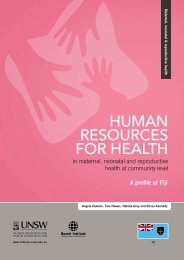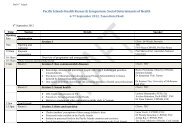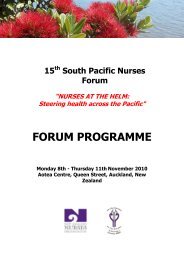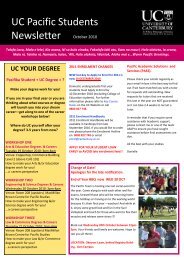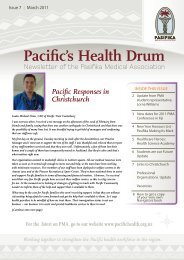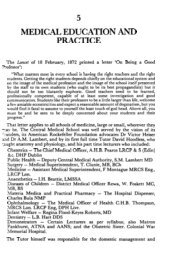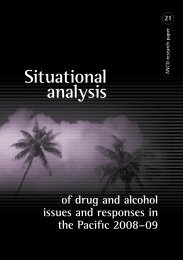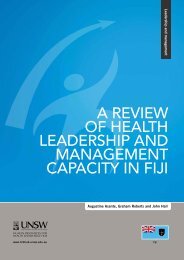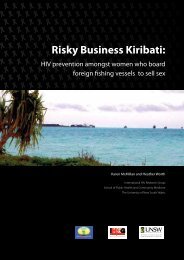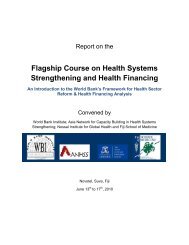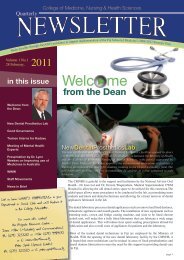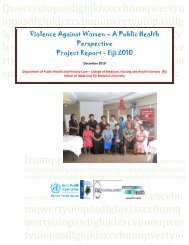rp21 situational analysis - Pacific Health Voices
rp21 situational analysis - Pacific Health Voices
rp21 situational analysis - Pacific Health Voices
Create successful ePaper yourself
Turn your PDF publications into a flip-book with our unique Google optimized e-Paper software.
and incorporate offences for emerging drugs<br />
of concern in the region. A September 2008<br />
hearing by the Australian Senate Standing<br />
Committee on Foreign Affairs, Defence and<br />
Trade raised questions on the transhipment<br />
points for illegal drugs and trafficking on<br />
illegal drugs and weapons. The inquiry<br />
considered the main economic and security<br />
challenges facing Papua New Guinea and<br />
the Island States of the Southwest <strong>Pacific</strong>. 12<br />
While the early approach has been<br />
enforcement- centred, the broadening commitment<br />
to also address substance use issues<br />
from a health perspective is a positive development.<br />
Agencies such as WHO’s Western<br />
<strong>Pacific</strong> Regional Office (WPRO) have worked<br />
with the Secretariat of the <strong>Pacific</strong> Community<br />
(SPC) for a number of years on nationallevel<br />
alcohol policy development and have<br />
engaged with the PDARN to increase activity<br />
in this area. This renewed <strong>Pacific</strong> focus<br />
includes appointment of advisers to support<br />
program development in the region. Increasing<br />
attention to alcohol issues is also reflected<br />
by broader recognition that alcohol needs<br />
to be incorporated into national-level plans<br />
concerning non-communicable diseases.<br />
1.2 The region<br />
The <strong>Pacific</strong> is characterised as a region for<br />
the purposes of many international interventions,<br />
interactions and assistance programs.<br />
In addition, representatives of all<br />
<strong>Pacific</strong> States participate in regional forums<br />
designed to create a strategic and unified<br />
approach to development and interactions<br />
with the international community. Although<br />
it is not a member of regional forums and<br />
networks, Timor-Leste is included in this<br />
<strong>analysis</strong>. The logic for this inclusion is informed<br />
by geographical proximity and the<br />
many parallel development imperatives and<br />
risk factors that characterise Timor-Leste and<br />
the PICTs.<br />
Where the country profiles highlight local<br />
trends, organisations and capacity to respond<br />
to substance use issues, the regional overview<br />
seeks to highlight common themes and<br />
identify areas potentially justifying a regional<br />
response. The benefit of a regional overview<br />
is to flag the potential for resource and skills<br />
sharing, and country-to-country mentoring<br />
and support mechanisms. Furthermore, interventions<br />
such as the Regional Assistance<br />
Mission Solomon Islands (RAMSI) impact locally<br />
(on Solomon Islanders) and regionally<br />
(on deployed personnel); these complex interactions<br />
require complementary and considered<br />
responses. Other examples include<br />
regional-level trade agreements with a direct<br />
impact upon domestic strategies to regulate<br />
alcohol imports and the occasionally<br />
advanced argument for a regional court.<br />
Decisions at regional level cannot be taken<br />
without considering domestic effects. These<br />
examples highlight the benefit of a regional<br />
understanding while cautioning against an<br />
imbalanced approach too heavily reliant on<br />
regional responses. Other regional versus domestic<br />
challenges including migration and<br />
governmental stability are explored in detail<br />
in the section below.<br />
3<br />
12 Above, fn.10.<br />
Regional overview



